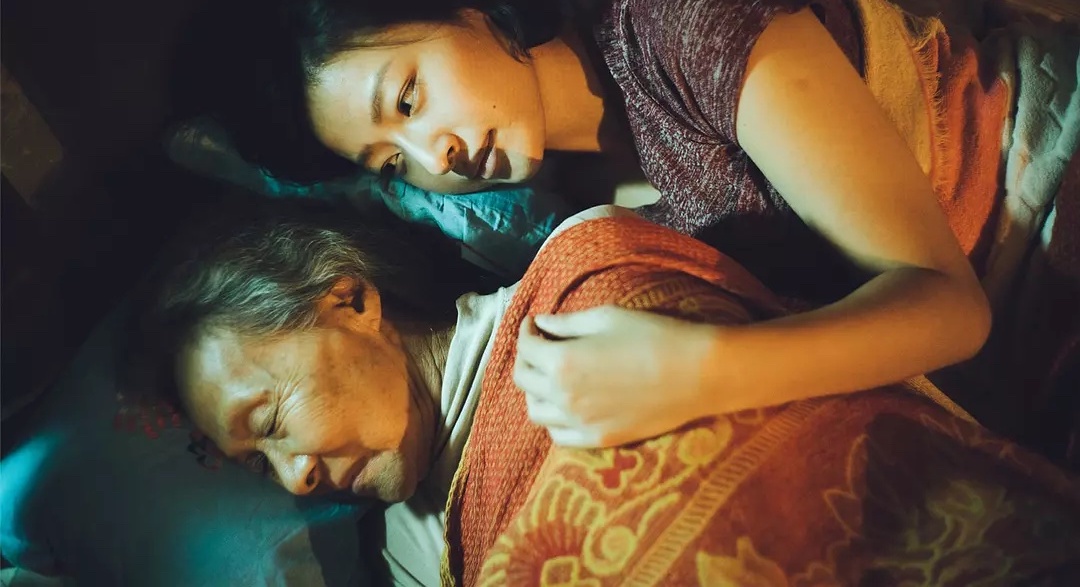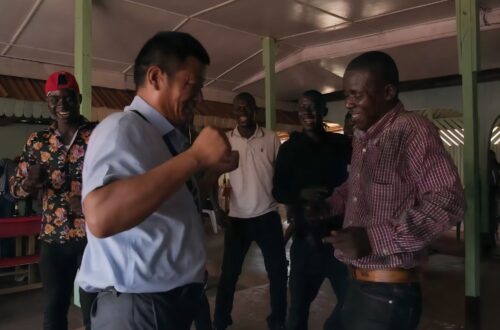Till death brings us together: ‘Love Education’ review

Despite historical turmoil and social transformations, women believe in love, search for love, sustain the institutions of love, and pay the price for love.

In Love Education 相爱相亲, love transcends death but faces complications in everyday life. The film starts on the deathbed of an elderly woman identified as Granny (Wang Liyuan 王丽媛), who dreams of her final reunion with her white-haired lover in a lush forest bathed in sunshine. This romantic fantasy soon confronts ugly reality when Huiying (Sylvia Chang 张艾嘉), Granny’s daughter, becomes determined to fulfill her mother’s last wish of resting alongside her father. Huiying’s proposal of moving her father’s grave from his ancestral village to the city faces fierce resistance from Nanna (Wu Yanshu 吴彦姝), the father’s first wife by an arranged marriage. Although abandoned just a few months after her marriage, Nanna stays loyal to her husband her whole life and guards his grave as the final proof of their relationship.
Love Education is renowned Taiwanese actress-director Sylvia Chang’s first film shot in mainland China and expands the scope of her former work 20:30:40 (2004) in its portrayal of generational dynamics among women. In the earlier film, three women negotiate the challenges in personal and professional lives at the age of 20, 30, and 40, respectively. The new film not only widens the age gap among its heroines to the cusp of 30, 60, and 90, but also sets the story in the broader context of the monumental historical turmoil and social transformations taking place in modern China. The generational gap is supplemented with gaps between the country and the city and, above all, between a present that is eager to move forward and a past that refuses to rest in peace.
Nanna’s village welcomes Huiying, her driving instructor husband (fifth-generation director Tian Zhuangzhuang 田壮壮), and TV reporter daughter (Lang Yueting 郎月婷) with an ancient “chastity arch,” a feudal monument to honor widows who fulfill their wifely and filial duties, whose ideology Nanna carries on with her fidelity to her absent husband. In contrast, Huiying’s home city is in a state of constant demolition and renovation. Old neighborhoods are torn down to give way to new high-rises; bureaucracy becomes more labyrinthine in the name of progress; sites of memory vanish without a trace.
Beneath their surface differences, the women of three generations find common ground in their sacrifice for love. In The Female Complaint: The Unfinished Business of Sentimentality in American Culture, the literary scholar and cultural theorist Lauren Berlant distinguishes two contexts of loving: the “utopian” and the “practical” ones. In its “utopian project,” “love is supposed to transcend or at least to neutralize the contradictions of history.” In practice, however, love inevitably involves “failure, violence, and social hierarchy.” Love Education dramatizes the clash between these two contexts, where the two sides of the love triangle among Granny, Nanna, and Grandpa correspond to Berlant’s “the utopian and the practical contexts of loving.” While Granny’s last dream testifies to love’s utopian promise of transcendence, Nanna’s persistence reminds everyone of the “contradictions of history” this promise conceals.
In the face of this clash, the women of all three generations endeavor to keep “love’s utopian promise” alive. Huiying clings to the rosy memory of her parents’ lifelong romance as a reminder of “love’s utopian promise” in the face of personal crises — imminent retirement, an insipid marital life, approaching old age, and the fear of abandonment. Nanna clings to the institutions of marriage and family — her name in the family tree, old letters from her absent husband, and the grave she is ready to share in the near future — to justify a life of loneliness and deprivation. Unrequited love also connects Nanna and Weiwei, Huiying’s grown daughter, when the latter finds her romance with aspiring musician boyfriend Da (Song Ningfeng 宋宁峰) jeopardized by the sudden arrival of Da’s old flame (Tan Weiwei 谭维维) and Da’s final departure for Beijing to pursue his rock star dream. Da leaves his hometown and sweetheart to join the mass migration from the vast inland to major coastal cities for better opportunities in China’s economic miracle, just as Grandpa left Nanna and his ancestral village to escape a famine decades ago. Women — Nanna, Weiwei, and Da’s unnamed ex-lover — are the casualties of these migrations. The mise-en-scene of the night club and the soundtrack of Hong Kong pop is a long way from the chastity arches, but women continue to love and wait for ambitious men on the road as if history had stood still with regard to love.
Despite historical turmoil and social transformations, women believe in love, search for love, sustain the institutions of love, and pay the price for love. According to Berlant, women’s culture “promotes a core form of gendered personhood for women” to “identify with each other as women despite the myriad economic, social, and historical forces that create differences and antagonisms among them.” In this “intimate public,” women’s burden is “producing emotional clarity for others and protecting everyone’s optimism for intimacy’s potentially lifting effects.” In Love Education, the three generations of women form such an intimate public: together they protect everyone’s optimism about love. Through the use of a golden-filtered lens, a sentimental soundtrack, and melodramatic tropes of separation and reconciliation, the film presents a therapeutic portrayal of intimacy to reconcile women across generations and across “contradictions of history.”
The film is redeemed from too-neat reconciliation through its other central theme: death, the ultimate separation. Many moving scenes concern death and mourning. Huiying has a dream that mirrors her mother’s last dream, only the boy in white becomes her youthful husband. Nanna keeps a coffin in her bedroom, calmly preparing herself for her final departure and final reunion with her absent husband. Before leaving for Beijing, Da has his picture taken lying in that coffin. Granny’s minimalist funeral, where the family of the deceased is asked to pick up the remains of the skull from the ashes, is juxtaposed with an extravagant rural funeral where Huiying watches the father (Geng Le 耿乐) of a student of hers perform as a hired mourner.
Inevitable death unites women and men in their communal mourning. In a poignant sequence, Nanna receives, to her pleasant surprise, a photoshopped picture of her late husband and herself but accidentally ruins the picture in the rain. The scene of Nanna weeping over the once-again obliterated face of her lover is crosscut with Da performing the first song he writes from a woman’s perspective about her endless wait for an absent lover. The juxtaposition deepens the meaning of the otherwise sentimental song. In addition to the “intimate public” of women, death forms another public for both women and men across generations and social classes. The ultimate separation provides final reconciliation.
Film Friday is The China Project’s film recommendation column. Have a recommendation? Get in touch: editors@thechinaproject.com





